On the way home from 3-plus weeks in Ireland, Netherlands and England, I offer a few brief gleanings in advance of blogs to come later.
• About the United Kingdom, which people in Northern Ireland are sure they are part of, and the British Government agrees is true: Just try to spend pounds issued in Belfast when you get to London, and you'll get reactions ranging from “We don't take that” to “if that's all you've got” on down to “You've got to take it to a currency exchange to get British money.”
• In many stores in the Netherlands, you can't spend cash. And in some places, including transit, no credit cards. The preference is for “pinnen,” which means using a debit card with PIN.
• If you stand still on a corner in Dublin for more than a couple of seconds, someone will ask if you need help or directions. And nearly always the directions were right.
• Dublin's transit system uses a stored-value card called LEAP, which covers bus, tram, parts of the rail system and more. It took us two days to discover that the bus fares are variable; if you don't tell the driver where you're getting off before you tap your card, you get charged to the end of the line.
• The trip home included a first: We got mobile boarding passes on our phones and actually used them. No one, and no machine, “helpfully” reprinted them for us at the airport. And, even though there's no TSA Pre-Check at Heathrow, it was on our boarding passes. When we got to the gate, those without Pre-Check on their passes were directed to a counter for more screening and questions.
• Two days before our return, AA sent us an email (or is it emAAil?) That they were now partnering with Airports, which could pick up our checked bags at our apartment on the day of flight and get them on the plane, freeing us from the hassle of either an expensive cab or an annoying Tube trip with bags. Cost for 1-4 bags runs from 30 to 50 pounds. Since we had an evening flight and had expected to spend that on Left Luggage charges, we took it. At the appointed hour, the driver showed up, checked passports and boarding passes, put seals and labels on, scanned them and took them away. We got email updates on pickup, and when the bags got to Heathrow, and when they were loaded.
• If you haven’t used the Mobile Passport app, stop waiting and do it. It’s sponsored by Customs and Border Protection and a couple of funders, and it beats Automatic Passport Control and Global Entry and everything else by a mile. You enter your (and family members’) passport data, take selfies of each of you, and answer the usual I-94 questions. On arrival, you click submit and get a barcode for each passenger. In the airport, you follow the Mobile Passport sign, no stopping, to an officer who glances at your passport and may look at your barcode, and you’re done.
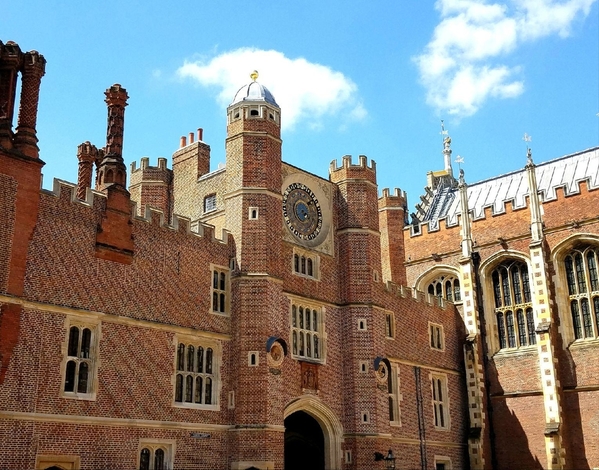
At Hampton Court Palace
• That's on the convenience side. Now let’s talk about not-well-thought out. We've most of us gotten into the habit of buying tickets on line and presenting them on our mobile devices. That works especially well because few people travel with printers, and increasing numbers are not in hotels. So why do Dutch railroads, perhaps uniquely in Europe, require you to print their electronic tickets? And the same for a number of places in England managed by Historic Royal Palaces, including Hampton Court Palace. At the Tower of London, you take your mobile to the ticket office and collect paper tickets.
• For those who are swept up in royal weddings and romances and BBC mini-series, well, I hate to bust your bubble, but the Queen is “in trade.” She has a souvenir shop in one of the out-buildings of Buckingham Palace. It’s called the Royal Collection Shop, and advertises that it is the home of “Official Royal Gifts.” It’s stocked with souvenirs of every sort, some of them displayed on a shelf disguised as a throne. Pictures, plates, play crowns, you name it. Even reproductions of the fruitcake served at the recent royal wedding. Or maybe it's just the leftovers.

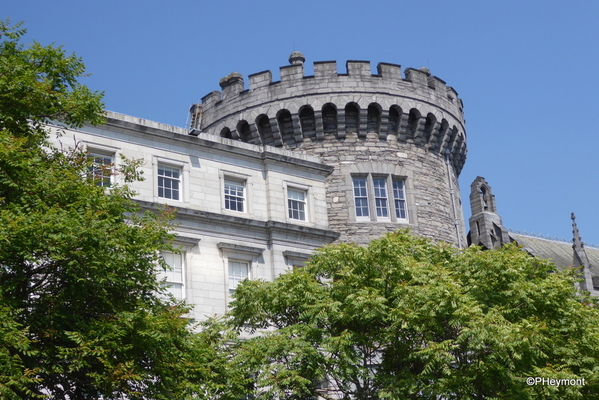
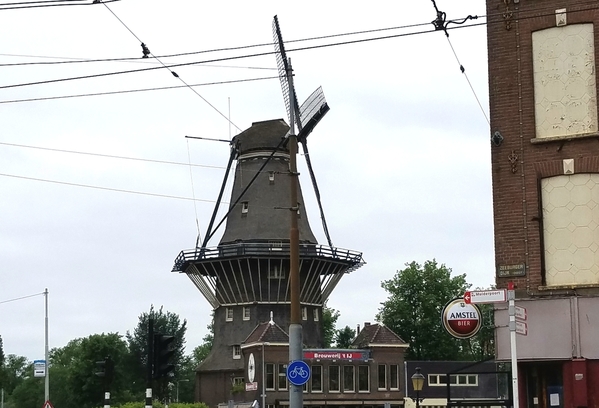
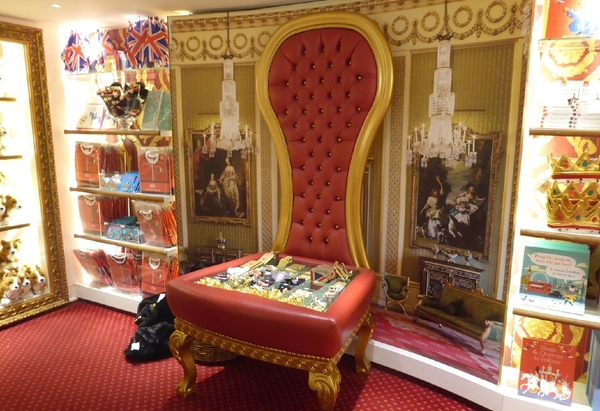


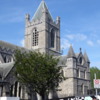


Comments (3)